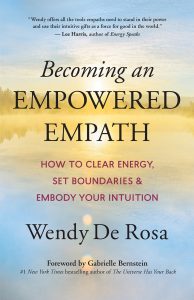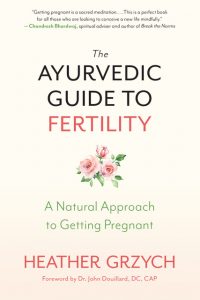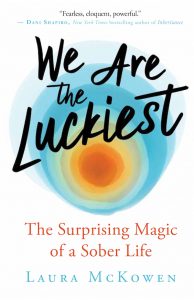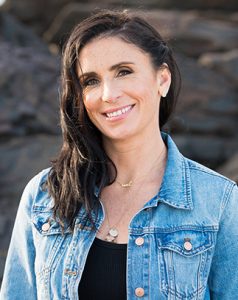A Simple Scientific Analysis to Reveal Your Profound Fundamental Reality
Axiom 1: A thing can only know itself directly
Any simple example can make this clear. Let’s say a storage drive. It can only “know” what is stored within it. It cannot know anything outside of itself directly. The only way the drive can know anything outside of itself is when information about that thing reaches the drive and gets stored within it, and the only thing the drive can know about the outside thing is that information stored within it — nothing more nothing less. (The word “know” has been used for a non-living thing only symbolically and represents what information that thing has access to).
Same thing holds true for a processor. It can only know and process information that gets inside it. In order for anything outside to get processed, it has to get inside the processor and that is all the processor can know and process.
In fact, it holds true for any random example. For instance, take a self-driving car. The car only knows what is within it. An outside object is known by the car only when information about that object enters the car’s systems through its various sensors. That information is what the car knows and not the object directly.
So, to generalize: X can only know X directly. If X knows anything about Y which is outside X, it is only because some information about Y has entered X, and that is all what X knows about Y. X cannot know Y directly unless Y itself enters into X.
This can be applied to absolutely anything in this universe (and beyond). And it makes complete sense as it cannot be any other way.
Corollary 1: You only know yourself directly
Now apply this to yourself and what you know. Seeing is one way of knowing. What does the eye see? Does it see the objects outside directly? Do the objects enter the eye directly? Not quite. The eye only sees light that reflects off these objects, enters the eye, gets absorbed at the retina and becomes internal to the eye. Same thing applies to hearing, touching, tasting and smelling (the only other ways you know something). Information (air waves, etc.) travels to the respective sense organs (ears, etc.) and gets absorbed, and the sense organ only knows that which is within it.
Even the brain (or the central nervous system) only knows itself and the activities within it. Some of this activity is caused by information that reaches the brain through the peripheral nervous system. For example, the light that gets absorbed at the retina is converted into neuro-signals that travel to the brain through the optic nerves, reach the vision center and stir certain neural activity there. Same thing applies to all other sense perceptions (sound, touch, taste and smell). Respective neuro-signals get generated at the different sense organs, travel to the respective centers in the brain and stir different neural activities. The brain also has some of its own internal neural activity (known as thoughts, etc.). And that’s all the brain ever knows — itself and the activities within it.
But does that explain what you actually know or experience? If the buck stopped at the brain and that is all what you knew, you would have known yourself as a slushy gray matter with neurons firing left, right and center. But that’s not the case. Your experience is something very different, something very vivid — a world full of sights, sounds and sensations, with some part of it more tangible (sense perceptions) and some less tangible (thoughts, etc.).
This entity which is knowing such a vivid world within itself is called consciousness, and this consciousness is what you actually are. That is because you only ever know what is within consciousness and never anything outside of consciousness directly. And since you can only know what is within yourself directly, you must be the consciousness itself, knowing a vivid world within yourself. You, the consciousness, are neither the brain nor even a part or product of the brain but something completely different, which will become clearer with the next axiom.
Axiom 2: The whole cannot be known by parts
If something is made up of parts, each part just knows itself directly (as per axiom 1), independent of other parts. There is no way for this conglomeration of parts to directly know the sum total of what is known by all its individual parts.
Consider the example of a distributed system consisting of many computers. Each computer that is a part of the distributed system only knows what is within itself directly. Computers may exchange information with each other over the network but at any given point in time each computer only knows what is within itself directly. There is no way for the whole distributed system to directly know the sum total of what is known by all its individual computers. Whenever information is accessed from the distributed system it only comes from one or more of its individual computers that have that information.
Same thing applies to everything made up of parts. And guess what? Everything in this universe is made up of parts because the universe is nothing but a conglomeration of smaller and smaller particles (quarks, leptons, bosons, strings, etc.) coming together to form larger and larger structures and systems. So, even when we said that the eye knows itself directly, it only meant that the individual cells that make up the eye know themselves directly. Each cell functions independently by processing information that reaches it and passing it on to the next set of cells. That’s why the eye doesn’t really “see” anything. It’s just a distributed system of cells processing light, converting it into neuro-signals and passing those on to the brain, with no way for the eye to really “see” the sum total of information being processed by all its individual cells. In fact, even the cells are further made up of smaller parts and so no.
Corollary 2: You are partless consciousness
The above axiom is also true of the brain as it’s also nothing but a conglomeration of cells. It’s not possible for the brain to directly know the sum total of all the information and activity within its parts simultaneously as a coherent world of sights, sounds and sensations. Even a part of the brain cannot do that as every part will itself be made up of smaller parts. This is very powerful reasoning why you can neither be the brain nor a part of it. Moreover, you cannot be a product of the brain either, as anything made up of parts can only produce something that is also made up of parts, with a part of the source producing a part of the product. If a product of the brain will also be made up of parts, it will have the same issue of not being able to directly know the sum total of what is known by all its individual parts.
Since you, the consciousness, know a vivid world within yourself as a whole, you cannot be made up of parts. Hence, you are partless consciousness which is neither a part nor a product of the brain (or any other part of the body or the whole body for that matter), You, the partless consciousness, are an entity completely different from the brain and the body.
Axiom 3: Partless implies Infinite
So far the analysis was of objects that are part of the world we know and hence easier to understand. But this axiom is going to be very subtle because we have never encountered any object in this world that is partless as they are all made up of smaller and smaller parts and particles. We have no experience of what a partless entity could be like. Some subtle thinking can reveal it though.
If an entity is partless, it must also be formless. Because a form needs different parts to come together in a certain way to build that form. Even the most nondescript form (like a spherical object) has different sides to it (this side, opposite side, inside, outside, etc.). Anything which has sides must have parts too as only different parts can make up the different sides. When something is in contact with one side of an entity, it can only be in contact with a part of the entity and not with the other parts which make up the other sides. Hence, an entity that is partless will also be formless.
If an entity is formless, it has to be limitless or infinite in every dimension. Because if it’s limited in even one dimension, that will result in a boundary, and boundaries define a form. For example, an infinite line is limitless only in one dimension but limited in other dimensions and hence still possess the form of a line. Similarly, an infinite plane is limitless in two dimensions but limited in the third dimension and hence still possess the form of a plane. Hence, anything which is limited in even one dimension will possess a form imposed by that dimension. Hence, an entity that is formless will also be limitless or infinite in every dimension.
Corollary 3: You are Infinite Consciousness, the One and only Reality, and the whole universe is only an appearance within you
As implied by the above axiom, you, the partless consciousness, are also formless and limitless in every possible dimension. Which means nothing else exists outside of you. Because if anything else exists outside of you, it implies a limit where you end and the other entity begins. This means that the whole universe (and anything else) must all be within you. Moreover, since you are partless whereas the universe is made up of parts, it cannot be real and must only be a false appearance within you, as nothing real made up of parts can exist within a partless entity. Hence, you are the one and only Infinite Reality that actually exists. It’s important to note that you are also unchanging as change is only possible from one finite to another finite on at least one dimension whereas you are Infinite in every possible dimension.
Important question: If you are Infinite Consciousness, the One and only Reality, and the whole universe is an appearance within you, then why do you seem to know only a part of it and that too channeled through a brain and a set of sense organs housed within a body?
Here’s an explanation: Since you are Consciousness, your very nature is to know yourself. But since you are Infinite you cannot know yourself directly in entirety, because anything that is known in entirety is limited to that knowing and hence finite. Hence you, the Infinite Reality, cannot know yourself as you actually are but only as you are not i.e. as false finite things. Since there are infinite possibilities of the type of false finite things that can appear within the Infinite, every possible imaginable and unimaginable finite thing is actually appearing within you. One set of such false finite appearances are dream-like virtual reality simulations. Within each simulation, there is an appearance of a brain and a set of sense organs and other organs housed within a body that represents a living being, through which a world teeming with other beings and things seems be known or experienced. You, the Infinite Consciousness, are knowing each simulation individually as all of them are appearing within you. If you would have known multiple simulations together, it would have become a hodge-podge, with too many overlapping sights, sounds and sensations, which would have not made any sense. Hence the best way to know these simulations is to know them individually and separate from each other. All these simulations are still interconnected as they are all appearing within you, the Infinite Consciousness, and hence they share common objects and events. Each of these dream-like simulations have such a structure that you tend to feel identified with a fake body-mind complex appearing within that simulation (just like it happens during a dream), but you are never actually identified and always remain unattached from the simulation. Nothing of the simulation can ever affect or harm you in any way as it’s not real.
Finally, since Infinite Consciousness cannot be known directly in entirety as it actually is, it can never be available for direct investigation making it impossible to describe its actual nature. But this much is very clear from the above analysis that you are none other than the Infinite Partless Consciousness, the One and only Unchanging Reality that actually exists!
(This article was cross-posted from happinessjourney.net/post/667314451407568896/a-simple-scientific-analysis-to-reveal-your)










 An Excerpt from Becoming an Empowered Empath by Wendy DeRosa
An Excerpt from Becoming an Empowered Empath by Wendy DeRosa Wendy De Rosa is the author of
Wendy De Rosa is the author of  An excerpt from The Ayurvedic Guide to Fertility
An excerpt from The Ayurvedic Guide to Fertility
 An excerpt from We Are the Luckiest by Laura McKowen
An excerpt from We Are the Luckiest by Laura McKowen Laura McKowen is the author of
Laura McKowen is the author of